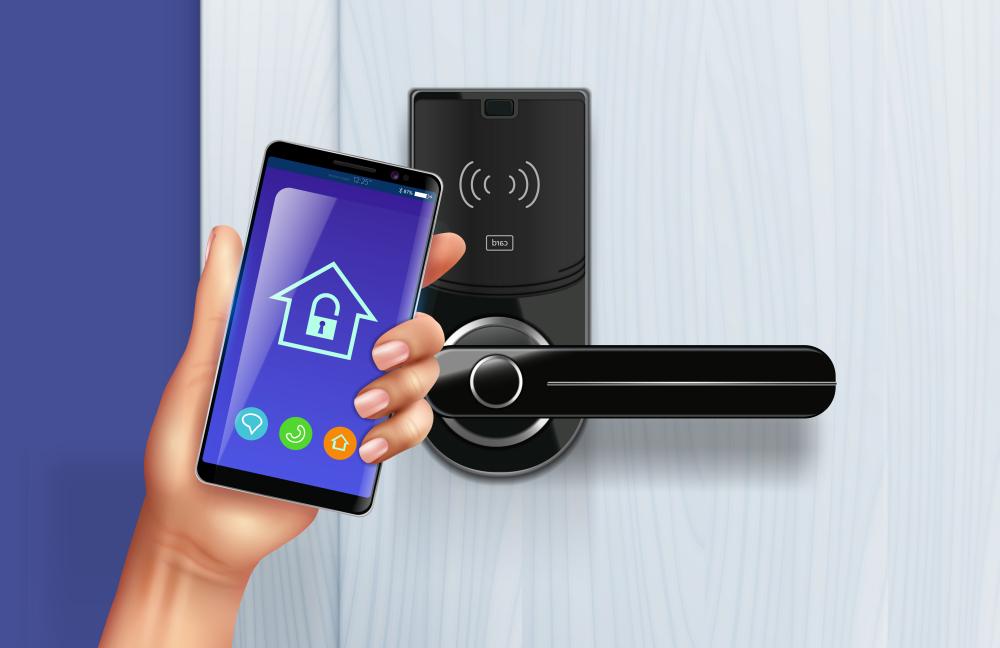Email format error
Email cannot be empty
Email already exists
6-20 characters(letters plus numbers only)
The password is inconsistent
Email format error
Email cannot be empty
Email does not exist
6-20 characters(letters plus numbers only)
The password is inconsistent

NEWS

Smart Lock vs. Electronic Lock: Choosing the Right Security Solution
Introduction
In today's rapidly advancing technological landscape, security has become a paramount concern for homeowners and businesses alike. Traditional locks are giving way to more sophisticated security solutions, with smart locks and electronic locks emerging as popular choices. This blog will delve into the key differences between smart locks and electronic locks, helping you make an informed decision about which one is the best fit for your needs.
Understanding smart locks
Smart locks are the poster child of the digital age. These locks integrate with your smartphone or other smart devices, allowing you to control access remotely. Here are some essential features and benefits of smart locks:
1. Remote Access: The hallmark feature of smart locks is the ability to control and monitor your locks remotely via a mobile app. You can lock or unlock your door from anywhere in the world, as long as you have an internet connection.
2. Keyless Entry: Say goodbye to physical keys; smart locks use a variety of methods for entry, including PIN codes, biometrics, and even facial recognition. This eliminates the risk of losing or misplacing keys.
3. User Access Management: With a smart lock, you can grant temporary access to guests, service providers, or family members with ease. You can set specific schedules or revoke access at any time.
4. Activity Logs: Smart locks maintain detailed logs of who enters and exits your property, providing a valuable security feature for tracking and monitoring access.
5. Integration with Smart Home Systems: Smart locks can be integrated into broader smart home ecosystems, allowing for seamless automation and control of various devices.
Understanding Electronic Locks
Electronic locks, while less "smart" than their counterparts, still offer several advantages over traditional mechanical locks. These locks rely on electronic components to control access. Here are some of their key features:
1. Keyless Entry: Like smart locks, electronic locks eliminate the need for physical keys, relying instead on PIN codes, keycards, or biometric data for entry.
2. Simplicity: Electronic locks are generally easier to install and maintain than smart locks. They do not require complex networking or integration with other smart devices.
3. Durability: Many electronic locks are built to withstand harsh weather conditions, making them suitable for outdoor applications.
4. Reliability: Electronic locks tend to have a longer lifespan than traditional locks due to their reduced mechanical wear and tear.
Key Differences and Considerations
Now that we've explored the features of both smart locks and electronic locks, let's examine the key differences and factors to consider when choosing between them:
1. Connectivity: Smart locks offer remote access and integration with smart home systems, while electronic locks typically do not have these capabilities. Consider whether you need remote control and automation in your security setup.
2. Security Levels: Smart locks often feature advanced encryption and authentication protocols, making them more secure against hacking attempts. If security is your top priority, a smart lock might be the better choice.
3. Cost: Smart locks are generally more expensive than electronic locks due to their advanced features. Electronic locks provide a budget-friendly alternative for basic security needs.
4. Installation and Compatibility: Smart locks may require professional installation and specific door compatibility, whereas electronic locks are often easier to install and fit a broader range of doors.
5. User Experience: Think about the user experience you want. Smart locks offer more convenience and flexibility with features like remote access and user access management, but electronic locks are simpler and may suit those who prefer a more straightforward approach to security.
Conclusion
Choosing between a smart lock and an electronic lock depends on your security needs, budget, and desired level of convenience. Smart locks offer cutting-edge features and connectivity, while electronic locks provide reliable, cost-effective security solutions. Assess your priorities and consider the factors discussed in this blog to make an informed decision on which type of lock is right for you. Ultimately, both options represent significant advancements in security technology, offering peace of mind and enhanced protection for your property.
